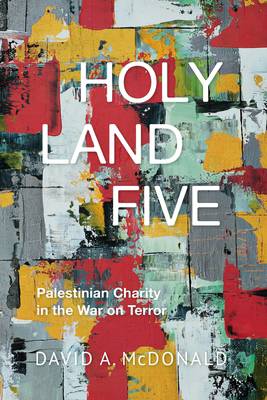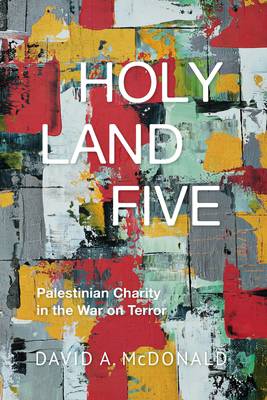
- Afhalen na 1 uur in een winkel met voorraad
- In januari gratis thuislevering in België
- Ruim aanbod met 7 miljoen producten
- Afhalen na 1 uur in een winkel met voorraad
- In januari gratis thuislevering in België
- Ruim aanbod met 7 miljoen producten
Omschrijving
Established in the 1980s, the Holy Land Foundation for Relief and Development (HLF) grew to become the largest Muslim charity in the US, funding orphans, hospitals, and refugee communities throughout the Muslim world. In the aftermath of 9/11, as fears of "Islamic terrorism" flooded mainstream news media and reshaped legislation, the HLF was designated a terrorist organization and five of its affiliates were indicted for conspiracy to provide material support to Hamas. After two criminal trials--the first of which was deemed a mistrial--the Holy Land Five were found guilty on all counts, receiving federal prison sentences ranging from 15 to 65 years.
Combining critical ethnography, discourse analysis, and first-hand accounts from those involved in the trials, Holy Land Five offers the first scholarly account of the largest terrorism financing trial in US history. Beginning with the origins of the HLF and its leaders and moving through the proceedings of both trials, David A. McDonald reveals the mutually constitutive relationship between discourse, affect, and politico-legal action. As legal events rooted in cultural politics and as cultural events with profound legal consequences, the HLF trials became a battleground for publicly litigating the overarching Israeli-Palestinian crisis as well as the US "war on terror." In documenting the lifeways of the defendants, Holy Land Five challenges current literature by proposing alternative possibilities for safeguarding human rights for all parties in Israel and Palestine.
Through comprehensive research into what took place both inside and outside the courtroom, Holy Land Five offers a new understanding of these contentious trials and their long-lasting effects on the lives of the defendants as well as humanitarian aid agencies, Israeli-Palestinian relations, and US legal precedent.
Specificaties
Betrokkenen
- Auteur(s):
- Uitgeverij:
Inhoud
- Aantal bladzijden:
- 336
- Taal:
- Engels
- Reeks:
Eigenschappen
- Productcode (EAN):
- 9780253075468
- Verschijningsdatum:
- 6/10/2026
- Uitvoering:
- Hardcover
- Formaat:
- Genaaid
- Afmetingen:
- 152 mm x 229 mm

Alleen bij Standaard Boekhandel
Beoordelingen
We publiceren alleen reviews die voldoen aan de voorwaarden voor reviews. Bekijk onze voorwaarden voor reviews.









